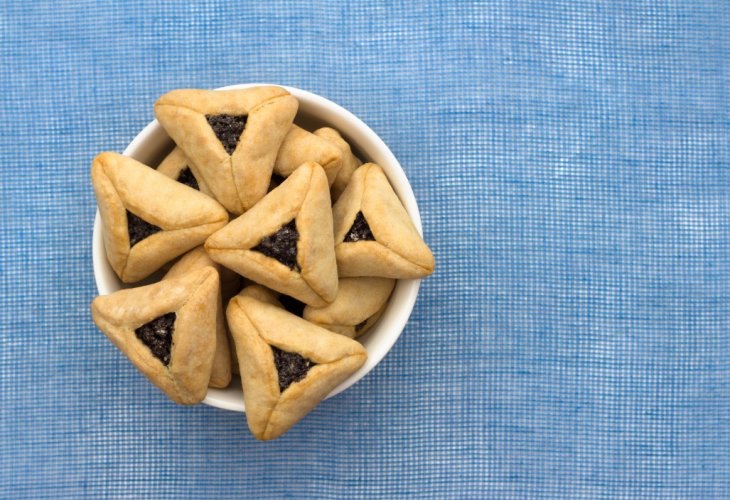Purim Hamantaschen: Why Poppy Seed Filling is the Ultimate Choice
Love poppy seeds? Discover why they're the ultimate filling for hamantaschen with all their health benefits explained.

Purim is never complete without hamantaschen, and hamantaschen are never complete without poppy seed filling – well, at least for some of us. Poppy seeds are certainly an acquired taste, and many people prefer chocolate in their hamantaschen, but if you knew how healthy these little black seeds are for you, you might not want to pass them up. Here are a few health reasons to eat poppy seeds.
In ancient times, poppy seeds were a symbol of honor and abundance. Pharaohs used them to prepare calming and pain-relieving medications. In ancient Greece, they were used for wound healing. Yemenite Jews traditionally prepared poppy tea to alleviate insomnia, while Algerian Jews used them to treat headaches, and in Morocco, they were given to children who had trouble sleeping.
1. Poppy seeds contain antioxidants that may help prevent various diseases. Their distinct aroma comes from many fatty acids, which make up about 50% of their weight. Poppy seeds are particularly rich in oleic and linoleic acids. Oleic acid helps reduce LDL or "bad cholesterol" levels in the blood. Linoleic acid is associated with reducing inflammation and oxidation processes, preventing heart disease and stroke.
2. Poppy seeds are a rich source of dietary fiber. In 100 grams of poppy seeds, there are 19.5 grams of fiber. The fibers absorb water, increase intestinal content volume, and thus help prevent constipation.
3. Poppy seeds provide an excellent source of B vitamins (including folic acid), a range of vitamins involved in body metabolism.
4. Poppy seeds contain high levels of minerals like iron, copper, calcium, potassium, phosphorus, manganese, zinc, and magnesium. Each of these plays a significant role in the health and proper function of the body systems. For instance, copper is essential for important biological processes such as iron absorption, brain development, and the health of the heart and skeleton. Zinc is important for many enzymes and regulates growth and development, sperm production, digestive system activity, and nucleic acid synthesis. Potassium is vital for cells and body fluids and helps regulate heart rate and blood pressure. Calcium and phosphorus have critical roles in bone mass and teeth. Poppy seeds contain ten times more calcium than 100 ml of milk.
5. Dried poppy seeds contain a minimal amount of opium alkaloids like morphine, papaverine, and others. Used in foods, these components have an almost negligible effect on the central nervous system. For this reason, poppy seeds have a calming and pain-relieving effect. Extracts from dried poppy seeds are used as components in medications, including traditional medicines such as cough syrups and expectorants. A urine test after eating poppy seeds might show traces of opium - so avoid such a test after Purim.
In summary, it is important to know that 100 grams of poppy seeds contain 525 calories, 18 grams of protein, and 28 grams of carbohydrates, of which 19.5 grams are fiber, and 42 grams are fat. If you are among the poppy seed enthusiasts, this is your holiday, so prefer homemade hamantaschen to avoid preservatives, artificial flavors, and sugars.
Adina Bechar is a clinical dietitian at the DMC Diabetes Treatment Center and the chairwoman of the ATID Association.

